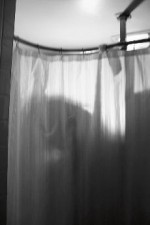Class uses garden to teach sustinablility
Castleton State College prides itself on being a “green campus” and has been considered one of the greenest in the state. “Green Mondays,” sustainability flyers and Soundings events are only a few of the efforts by CSC students to keep the campus beautiful and energy-efficient. The Environmental Harm and Mitigation Strategies class taught by Scott Roper is keeping up with this Castleton tradition by working on a project that will hopefully benefit everyone in the community in the future.
Roper assigned the class a service learning project and they decided as a group to work on the community garden, or “Colonial Garden,” which is located near the outdoor classroom in the observatory lot. The class was split up into two groups with one responsible for tilling and preparing it for winter and the other group for looking at the policy and seeing how they can make the garden a part of Castleton’s sustainability efforts.
So far nothing has been planted and they aren’t sure exactly what the garden will consist of.
“Since we’ve only been preparing, so far we have nothing. It’s experimental at this point,” said Roper.
The class will test out different types of farming with raised and non-raised garden beds. They made a trip over to Green Mountain College to get ideas on what they were doing with their community garden as well.
“I’ve never taught this class, I’m not much of a gardener myself, so I’m learning a lot from this,” said Roper.
This class is a “one shot deal” as put by Roper, but the project will still be worked on in Roper’s spring class, Environmental Problems. They will take the mission statement created by the EHMS class, and build on it.
“The big challenge in all of this is to find someone who can maintain it in the summer,” Roper said.
He thinks they may have to give an incentive to a student or students in order to get someone to check on the garden and keep it up when school is not in progress.
One of Ropers students, Grant Lawrence agrees.
“The garden needs to have an independent study aspect over the summer that gives credits,” he said. “It is something we are trying to accomplish and I find it to be one of the most important parts. It is hard to get anyone to take on extra tasks here as they are underpaid to begin with. But the best option we found is credits for working over the summer.”
The class is focused on sustainability, and besides this project, it discusses water issues, climates changes and other major environmental problems.
“This is one small way to try to reduce our carbon footprint, as one of my students would say,” Roper said.






